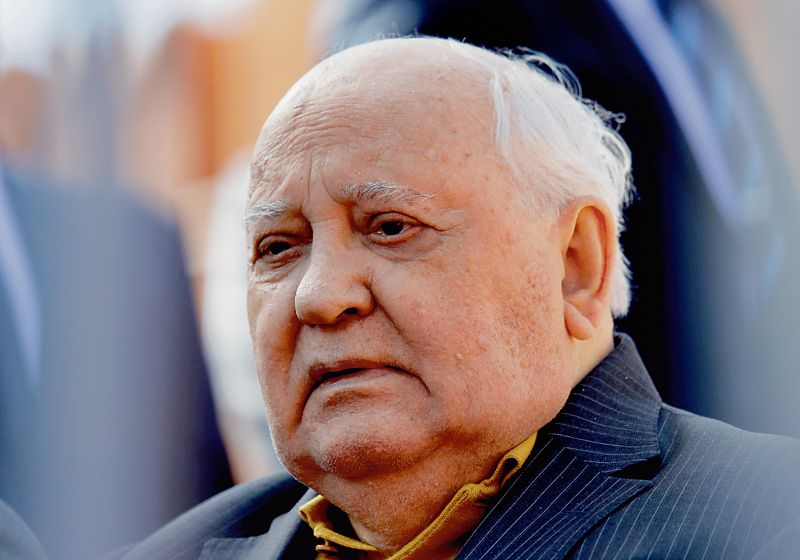Mikhail Gorbachev - A brief estimation of his life and achievements
Blogs Home
- 03 Sep 2022
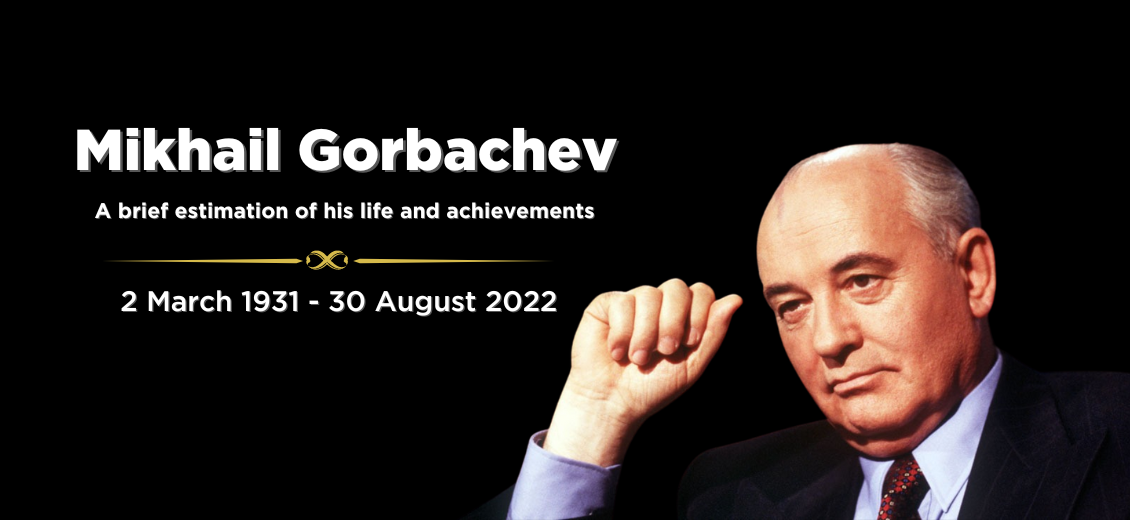
Mikhail Sergeyevich Gorbachev (2nd March 1931- 30th August 2022) served as the last leader of the Soviet Union. He was a Soviet official, General Secretary of the Communist Party of the Soviet Union (CPSU) and President of the Soviet Union. Moreover, he worked extensively to make his country's political system more democratic. His efforts to decentralise the economy led to the end of communalism and the breakup of the Soviet Union. He was awarded the Nobel Prize for Peace in 1990, partly because he ended the postwar dominion of the Soviets in eastern Europe.
Early life
Born in Privolnoye, Stavropol Kray, Russia, U.S.S.R., he was half Russian, half Ukrainian. His father, Sergey Andreyevich Gorbachev, was Russian. He shared a close relationship with his son, Mikhail Gorbachev. His mother, Maria Panteleyevna Gorbacheva, was an orthodox Christian Ukrainian. Maria and Sergey agreed to name him Viktor, but Maria’s family had him secretly baptised and named Mikhail.
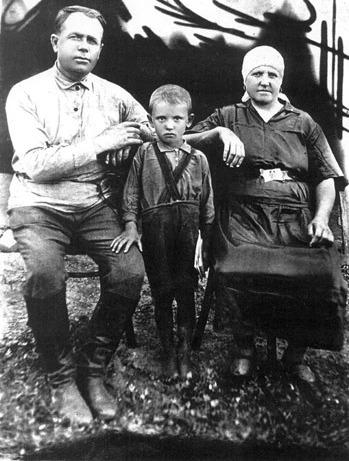
Mikhail Sergeyevich Gorbachev was born on March 2, 1931. Misha, as he was known, is seen with his grandparents at age 3.
Mikhail Gorbachev was the son of two poor peasants. He joined the Komsomol, i.e. Young Communist League, in 1946. His work revolved around driving a combine harvester at a state farm in Stavropol for four consecutive years. But his work and dedication to the Komsomol proved him as a faithful member. In 1952, he enrolled in law school at Moscow State University, later joining the Communist Party.
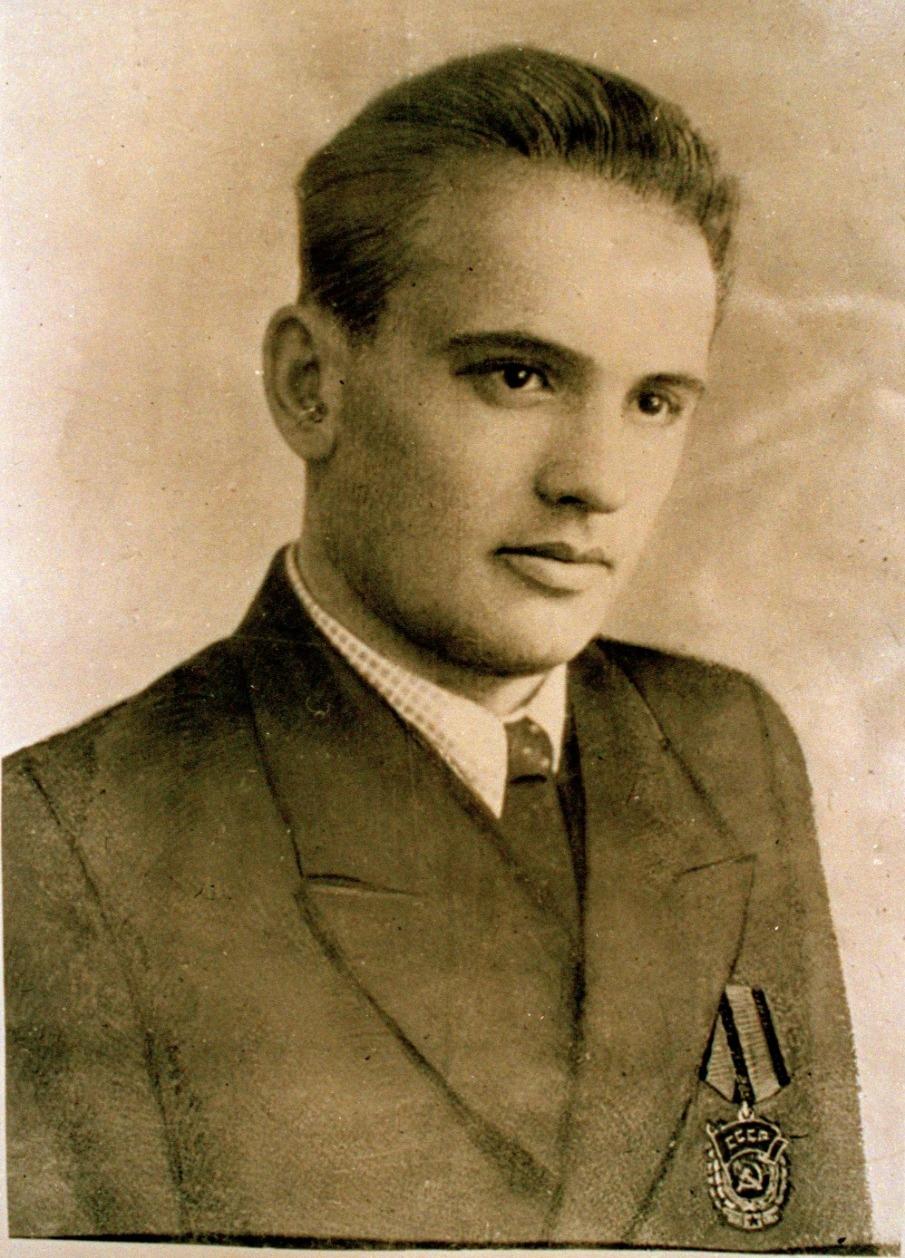 A young Gorbachev at the age of 19, wearing the Red Banner of Labor medal he received for driving a harvest combine on the plains of southern Russia.
A young Gorbachev at the age of 19, wearing the Red Banner of Labor medal he received for driving a harvest combine on the plains of southern Russia.
Graduating with a degree in law in 1955, he received many roles in the Komsomol and regular party organisations in his home state, Stavropol. He soon rose in ranks and came out as the first secretary of the regional party committee in 1970.
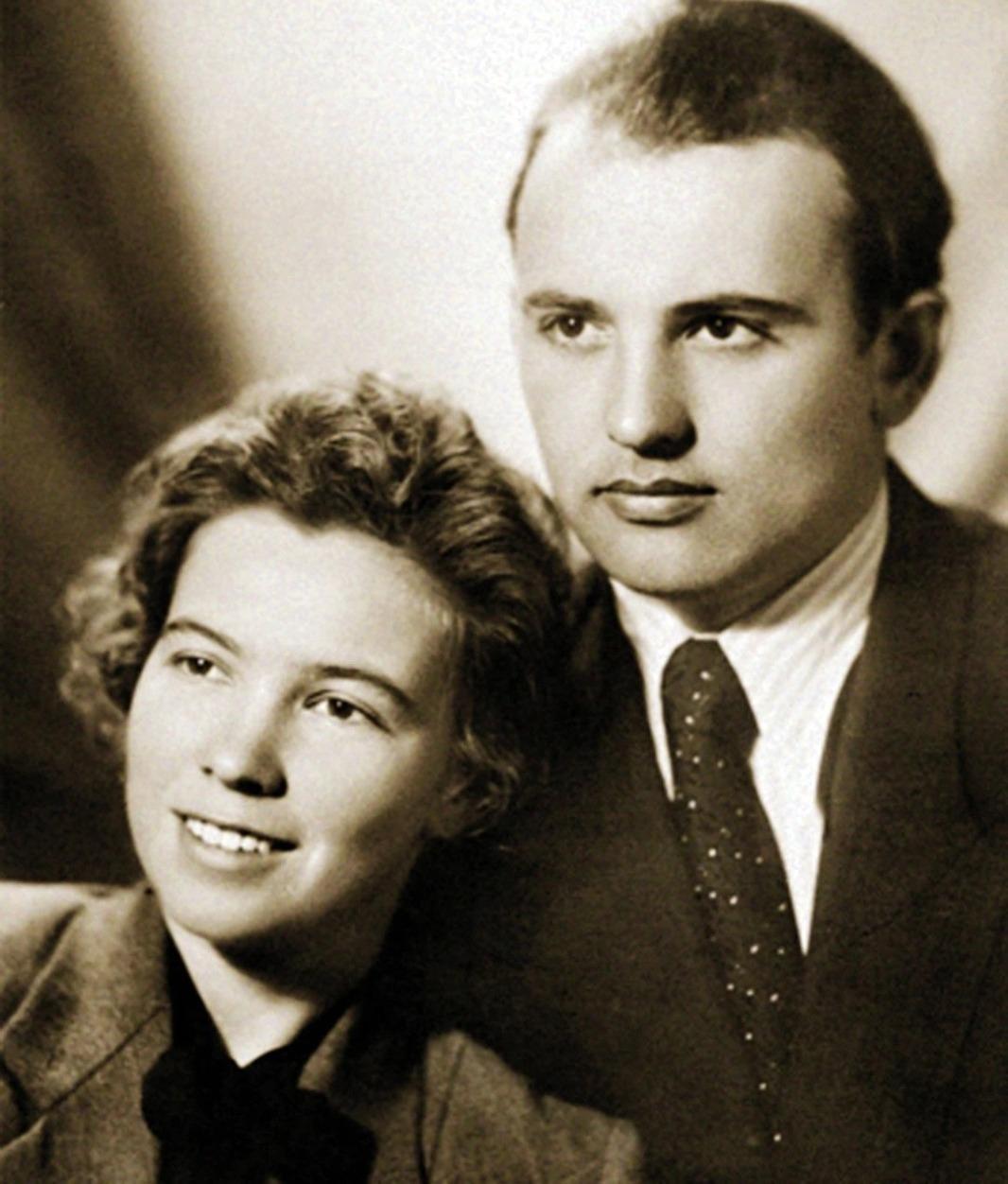 A portrait of Raisa Gorbacheva and Mikhail Gorbachev, who were married in September 1953. They were married for 46 years before Raisa died of leukaemia in 1999.
A portrait of Raisa Gorbacheva and Mikhail Gorbachev, who were married in September 1953. They were married for 46 years before Raisa died of leukaemia in 1999.
Major achievements
Mikhail Gorbachev was the General Secretary of the Soviet Communist Party. He became the de facto leader of the country in 1985.
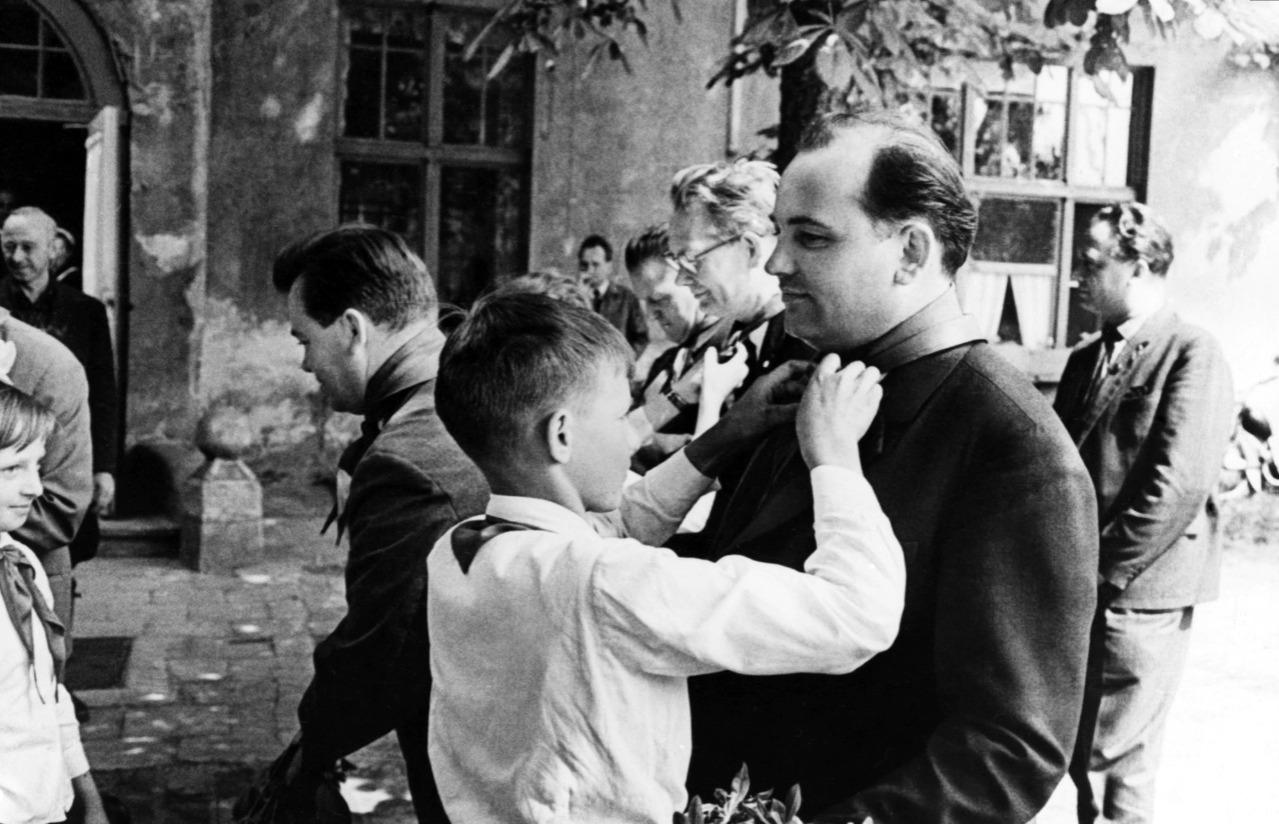 A young Gorbachev led a Communist Party delegation in Stavropol in 1966. In Stavropol, he began his career in the party that he would eventually come to lead.
A young Gorbachev led a Communist Party delegation in Stavropol in 1966. In Stavropol, he began his career in the party that he would eventually come to lead.
By the time he was 54, he had become the youngest member of the ruling council known as the Politburo. He was respected and revered as a fresh perspective amid rapidly-ageing leaders. His predecessor, Konstantin Chernenko, had passed away at 73, with just over a year of experience in the position.
Despite his young age, Gorbachev seemed to affect the global on-goings profoundly. Without any motive and underlying schemes of power-grabbing, his vision was to revitalise the society instead of ending the Soviet grip on eastern Europe.
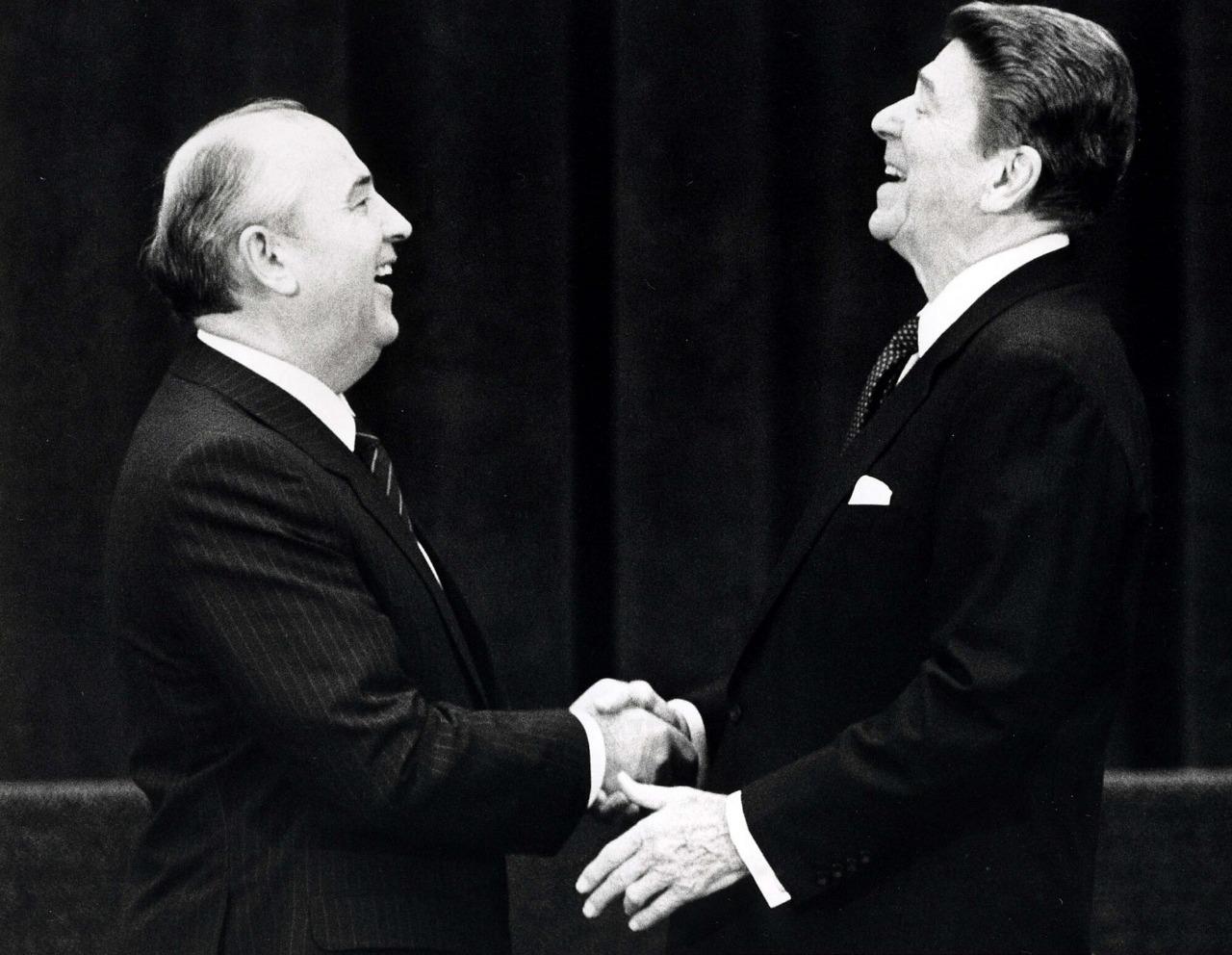 His first meeting with U.S. President Ronald Reagan (Geneva, November 1985). Gorbachev was elected general secretary of the Communist Party in March 1985.
His first meeting with U.S. President Ronald Reagan (Geneva, November 1985). Gorbachev was elected general secretary of the Communist Party in March 1985.
During this time, the Soviet economy struggled to keep up with the United States and Gorbachev’s policy of perestroika introduced numerous market reforms to the state. His policy helped expand markets and enrich the economy, though not at the scale of the US economy.
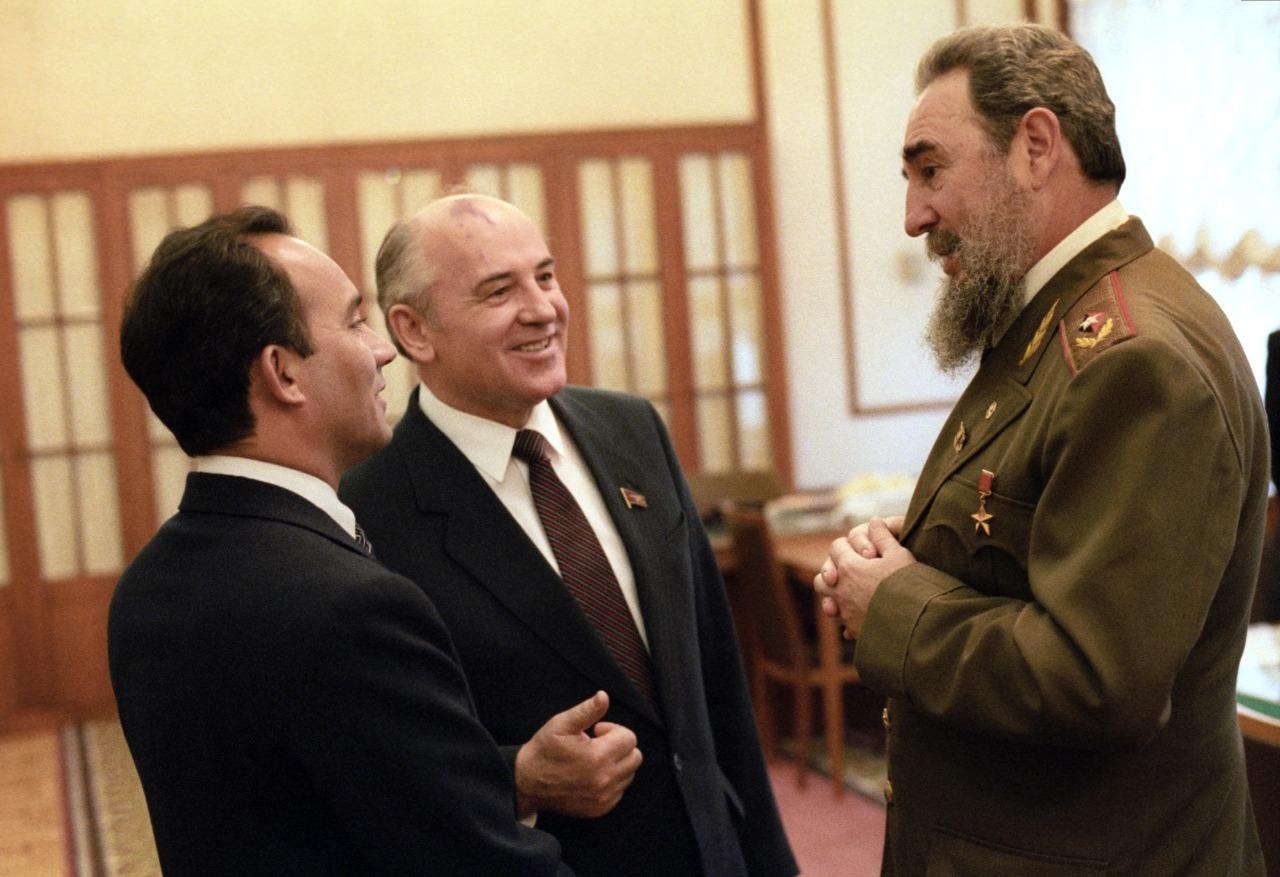 With Cuban President Fidel Castro at the Kremlin in March 1986. It was the same year Gorbachev began his initiative of ‘perestroika’ (restructuring) to help kick-start the stagnant Soviet economy.
With Cuban President Fidel Castro at the Kremlin in March 1986. It was the same year Gorbachev began his initiative of ‘perestroika’ (restructuring) to help kick-start the stagnant Soviet economy.
His achievements are well known all around the world. He reached arms control deals with the US, successfully reducing the number of weapons in both countries. Some called it a sign of peace and prosperity between the two nations. He also refused to intervene when east Europe rose against the Communist rulers. He knew when to pick his fights and when to not. A leader with such qualities is always admirable. Last but not least, he ended the bloody Soviet war in Afghanistan that had been raging since 1979.
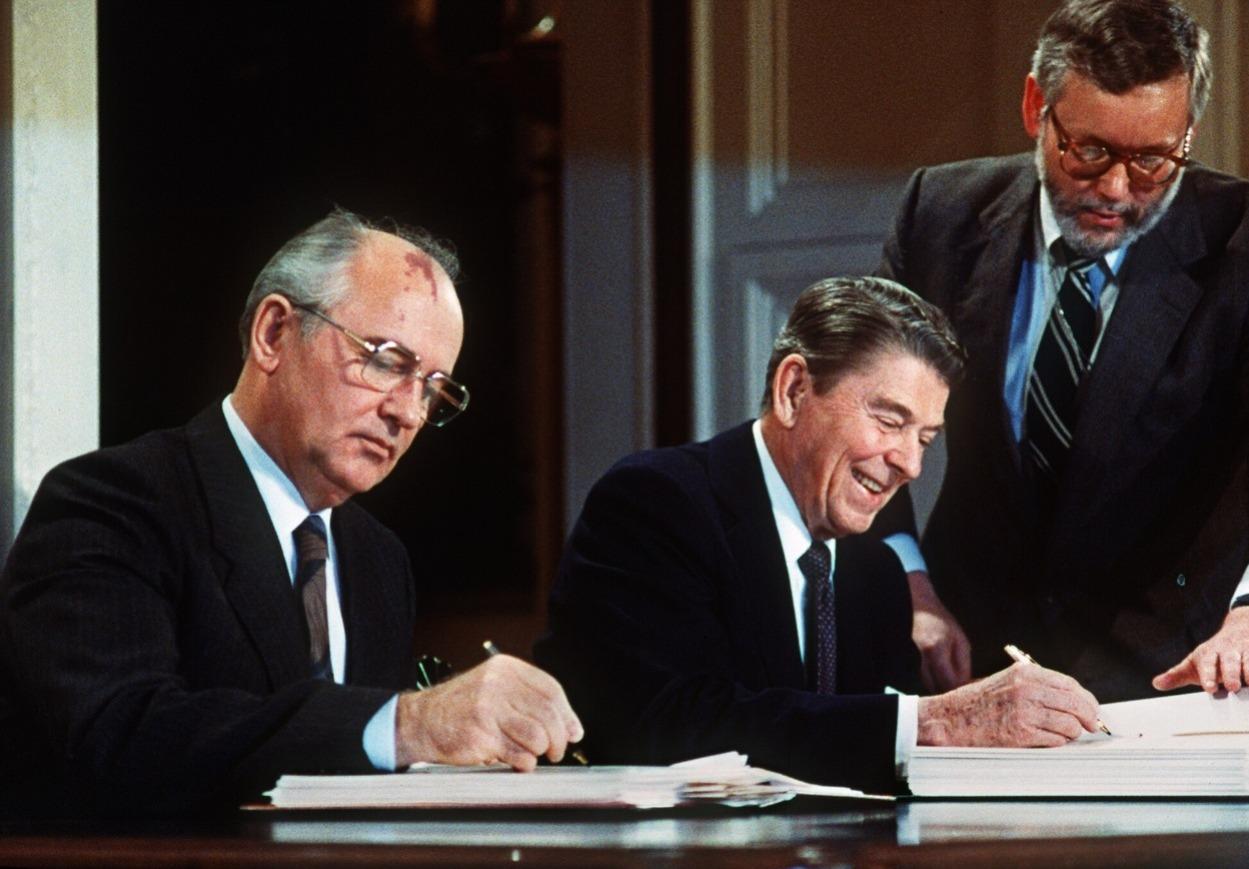 Reagan and Gorbachev signing the Intermediate-Range Nuclear Forces (INF) Treaty at the White House in December 1987.
Reagan and Gorbachev signing the Intermediate-Range Nuclear Forces (INF) Treaty at the White House in December 1987.
Mikhail Gorbachev introduced the policy of glasnost or openness. This policy allowed people to think and criticise the government freely- an action considered unthinkable and punishable by the people.
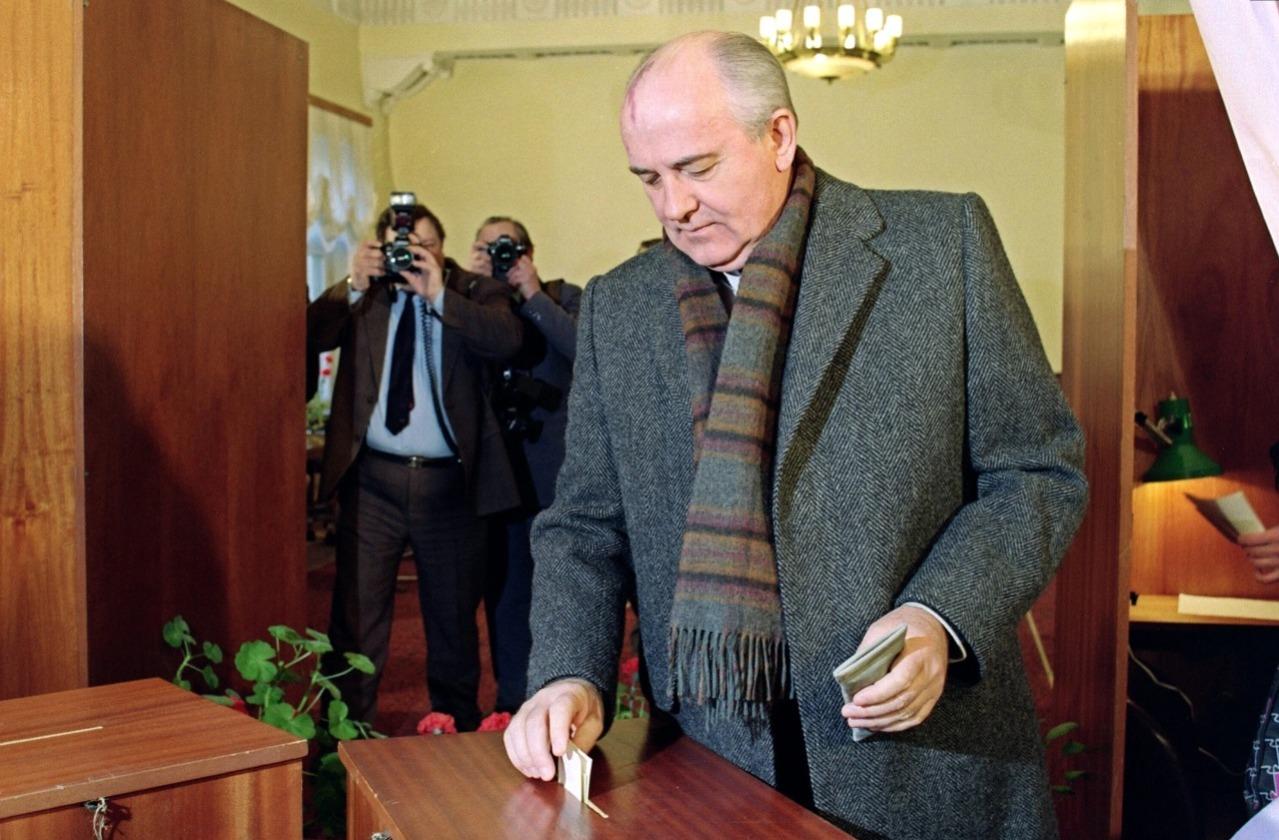 Gorbachev casting his ballot in Moscow on March 17, 1991, in a referendum to decide whether the Soviet Union would remain a unified state or not.
Gorbachev casting his ballot in Moscow on March 17, 1991, in a referendum to decide whether the Soviet Union would remain a unified state or not.
However, this policy seemed to unleash nationalist sentiments in many regions of the country. These sentiments attacked the country's stability and led right to the nation's collapse.
In 1991, after an organised coup by communist hardliners failed, the Soviet Union was dissolved, and Gorbachev agreed to this decision. He left the office of the Soviet Union, and that was the end.
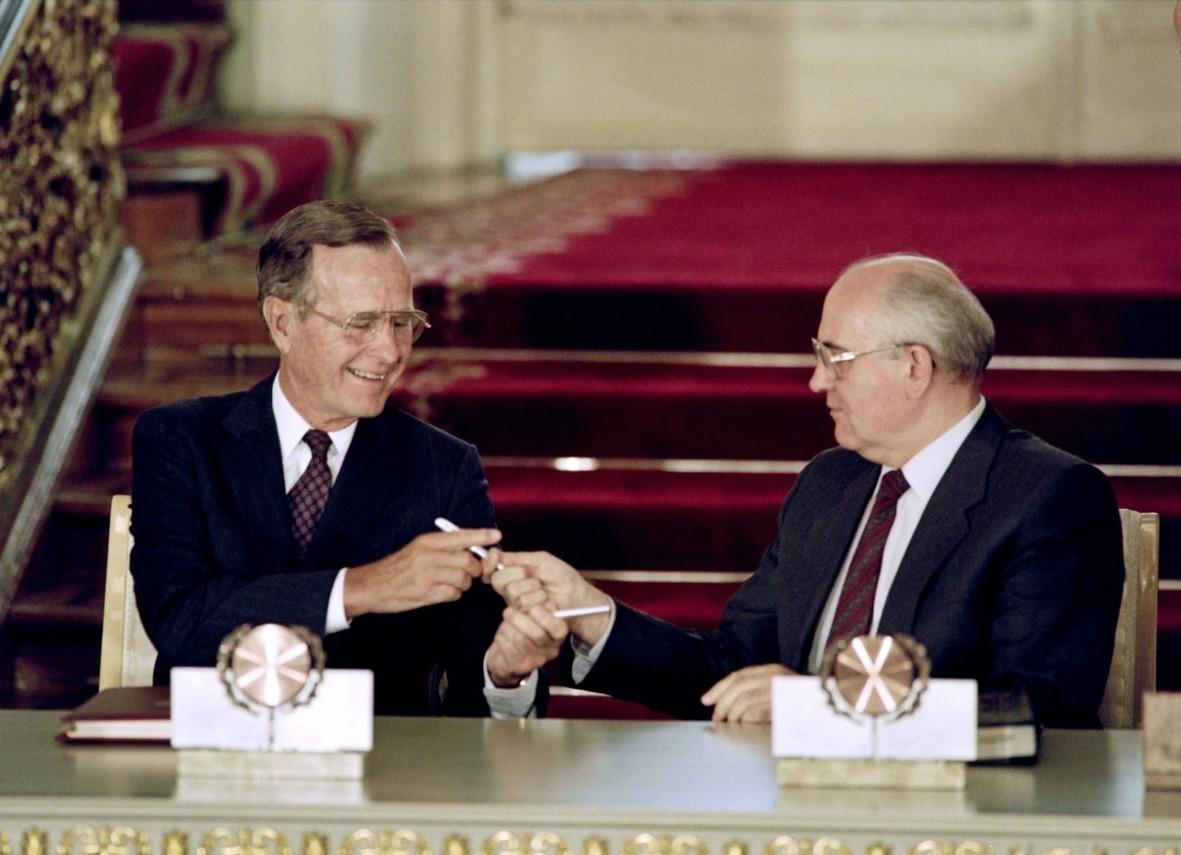 U.S. President George H.W. Bush and Gorbachev exchanging pens after signing the historic Strategic Arms Reduction Treaty (START), which cut the superpowers' nuclear arsenals by up to one-third, in Moscow on July 31, 1991.
U.S. President George H.W. Bush and Gorbachev exchanging pens after signing the historic Strategic Arms Reduction Treaty (START), which cut the superpowers' nuclear arsenals by up to one-third, in Moscow on July 31, 1991.
In the West, he was considered an architect of reform and vision. He created the conditions to end the Cold War in 1991 between the Soviet Union and Western nations, including the United States and Britain.
In 1990, he was awarded the Nobel Peace Prize for his numerous efforts or "for the leading role he played in the radical changes in East-West relations".
Amidst the newly emerging Russia after 1991, he was on the fringe of politics, mainly focusing on educational and humanitarian policies.
He attempted a return to political life after the Soviet Union crashed with his run for President of Russia in 1996. He managed to garner only 0.5% of the presidential votes in the elections.
Later life
In 1996, Mikhail Gorbachev ran for President of Russia, but with less than 1% of the votes, he lost. That loss did not stop him from actively participating in all walks of life and community. He emerged as a public speaker and joined various global and Russian think tanks.
In 2006, Gorbachev partnered with a Russian billionaire and former lawmaker Aleksandr Lebedev to buy nearly half of the independent newspaper called Novaya Gazeta. This paper was well-known for challenging the Kremlin's policies.
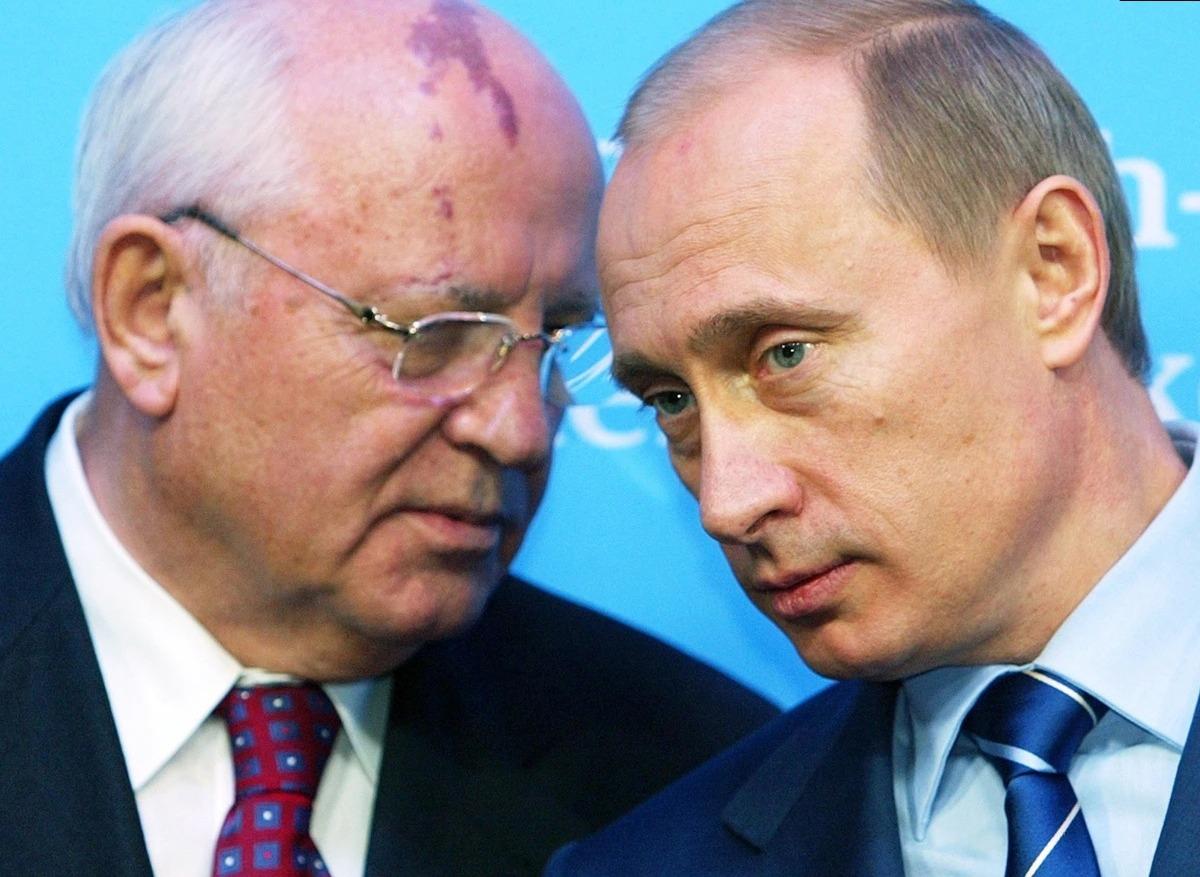 Gorbachev speaking to Russian President Vladimir Putin at a news conference in Schleswig, Germany, in December 2004.
Gorbachev speaking to Russian President Vladimir Putin at a news conference in Schleswig, Germany, in December 2004.
In 2008, Gorbachev and Lebedev announced they were forming a new political party, although it never saw the light of day. Mikhail Gorbachev was critical of Russian leader Vladimir Putin yet he wholeheartedly supported the annexation of Crimea in 2014 by Russia during the Ukraine crisis.
Different people, different opinions
Henry Kissinger (the US Secretary of the State under President Richard Nixon) told the BBC programme that Mr Gorbachev would be "remembered in history as a man who started historical transformations that were to the benefit of mankind and the Russian people".
James Baker (who negotiated the reunification of Germany with Mr Gorbachev's government) told the New York Times that "history will remember Mikhail Gorbachev as a giant who steered his great nation towards democracy".
However, Vladimir Rogov, a Russian-appointed official in occupied Ukraine, said Mr Gorbachev had "deliberately led the [Soviet] Union to its demise" and called him a traitor.
Ursula von der Leyen, President of the European Commission, wrote on Twitter that Gorbachev's role in ending the Cold War "opened the way for a free Europe. This legacy is one we will not forget."
Outside Russia, he was widely respected, with the UN chief saying he had "changed the course of history".
"Mikhail Gorbachev was a one-of-a-kind statesman," UN Secretary-General Antonio Guterres said. "The world has lost a towering global leader, committed multilateralist, and tireless advocate for peace."
Some still blame him for the turmoil that followed when the Soviet Union collapsed.
Gorbachev’s Indian Connection
Michail Gorbachev was a strong supporter of India and a close friend of Rajiv Gandhi. He even visited India in 1986, intending to extend his disarmament initiatives in Europe to Asia and to secure Indian cooperation in this task. He visited India once again after that in 1988. Gorbachev offered India state-of-the-art military equipment before offering it to any Moscow Warsaw Pact allies. On his death, Rajiv Gandhi named him the "crusader of peace" for all his efforts and hard work to maintain what once was lost.
If the press reports of those times are to be believed, then it can be inferred that the two leaders were on amicable terms and shared similar views on many things.
His death
On 30th August 2022, Mikhail Gorbachev passed away at 91. He died in a hospital in Moscow and was buried in Moscow’s Novodevichy cemetery. This cemetery is known as the resting place of many prominent leaders.
His health has declined significantly in the last few years, and he had to move in and out of the hospital many times. In June, international media reported that he was admitted to the hospital for suffering a severe kidney ailment. However, the cause of his death hasn’t been announced yet. Moreover, at the time of writing this, it is unclear whether he will receive a state funeral or not.
Gorbachev’s death indeed will seem like the end of an era for Russians. With his passing away, the times of the Cold War would inch a little closer to being a distant historical occurrence. The two good friends- former Indian president Rajeev Gandhi and Mikhail Gorbachev- will be united again in heaven without any political agendas.
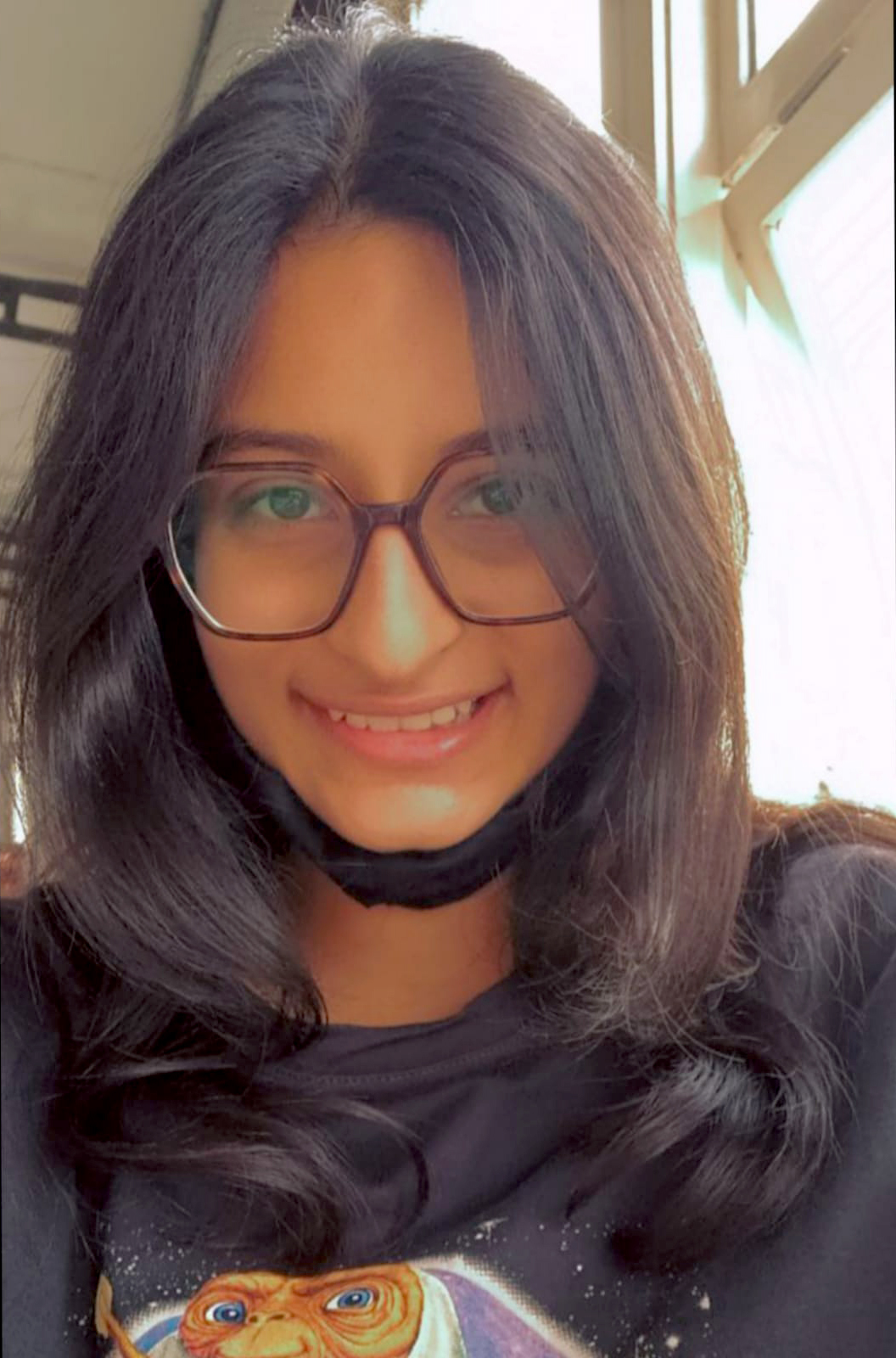
Jess Doshi
Jess Doshi is currently pursuing her Bachelor's degree in Arts. Apart from reading, she makes a conscious effort to do what she can for society. She aims to help the world around her in the best possible way-writing.
Berger, M. (2022, August 30). Mikhail S. Gorbachev, Reformist Soviet Leader, Is Dead at 91. The New York Times. https://www.nytimes.com/2022/08/30/world/europe/mikhail-gorbachev-dead.html
CNN, S. C. and L. S.-S. (n.d.). Mikhail Gorbachev, former Soviet president who took down the Iron Curtain, dies. CNN. https://edition.cnn.com/2022/08/30/europe/mikhail-gorbachev-dies-intl/index.html
Last Soviet leader Mikhail Gorbachev dies at 91. (2022, August 30). BBC News. https://www.bbc.com/news/uk-62732447
The Editors of Encyclopedia Britannica. (2019). Mikhail Gorbachev | Biography & Facts. In Encyclopædia Britannica. https://www.britannica.com/biography/Mikhail-Gorbachev

